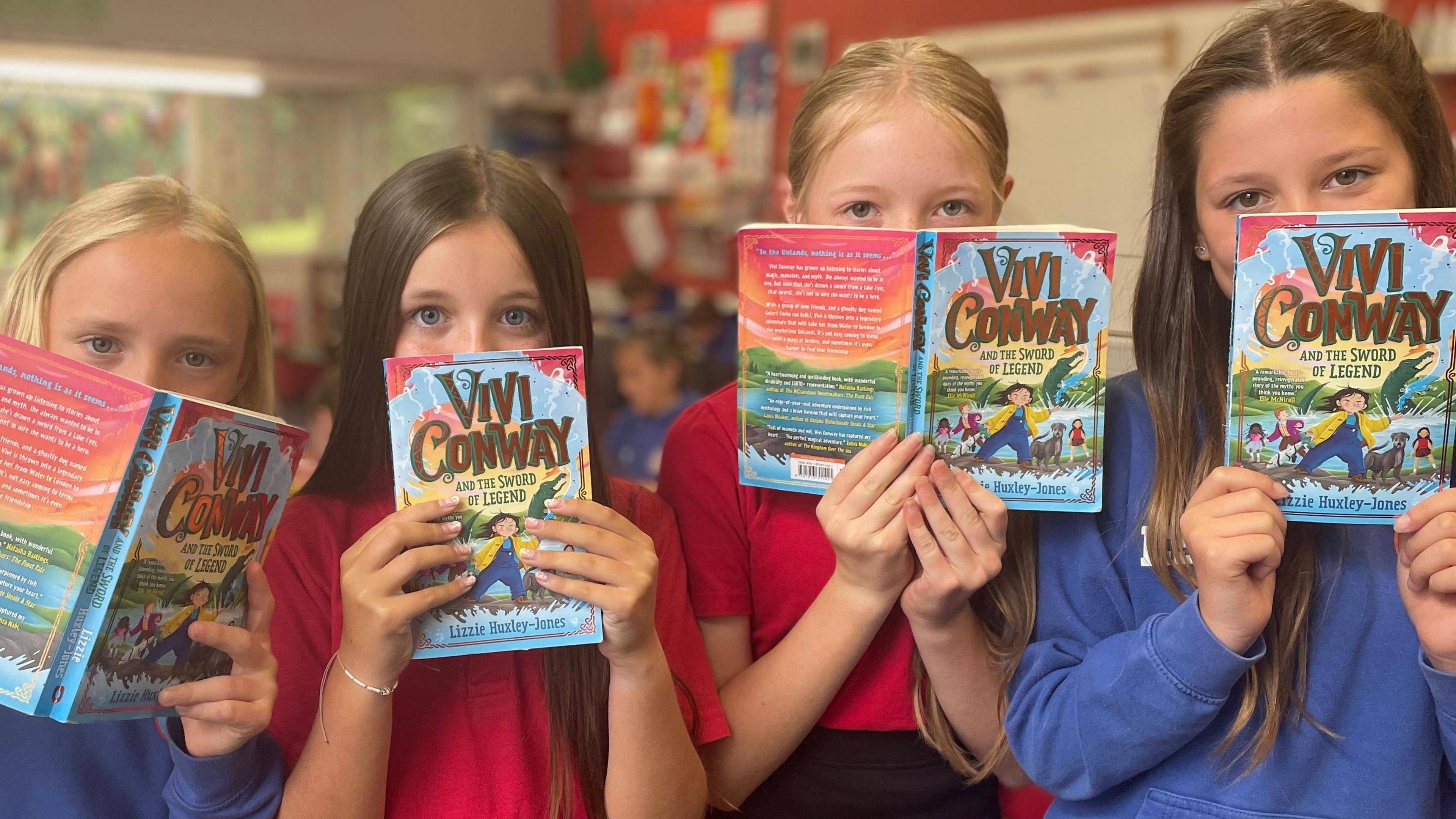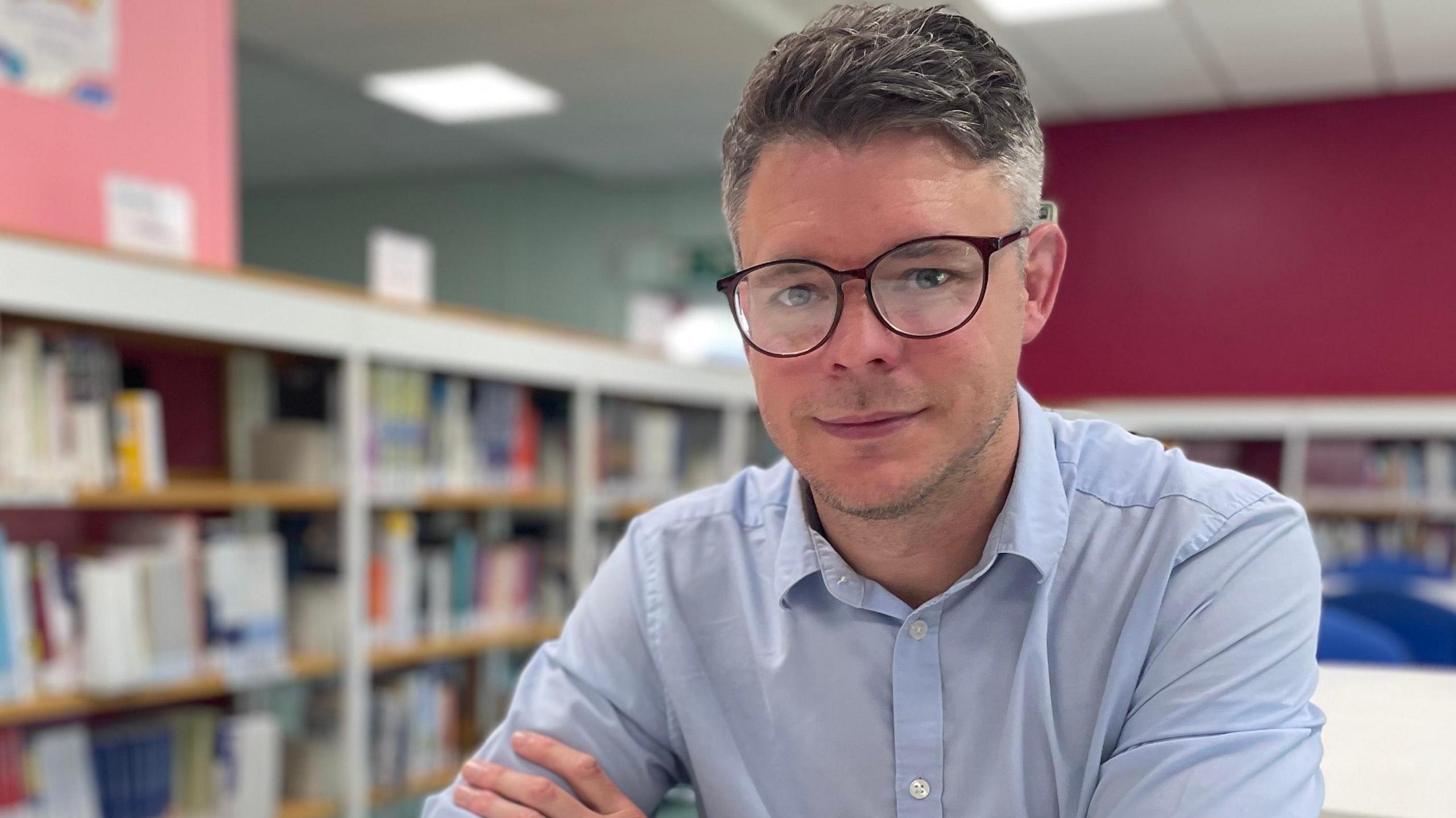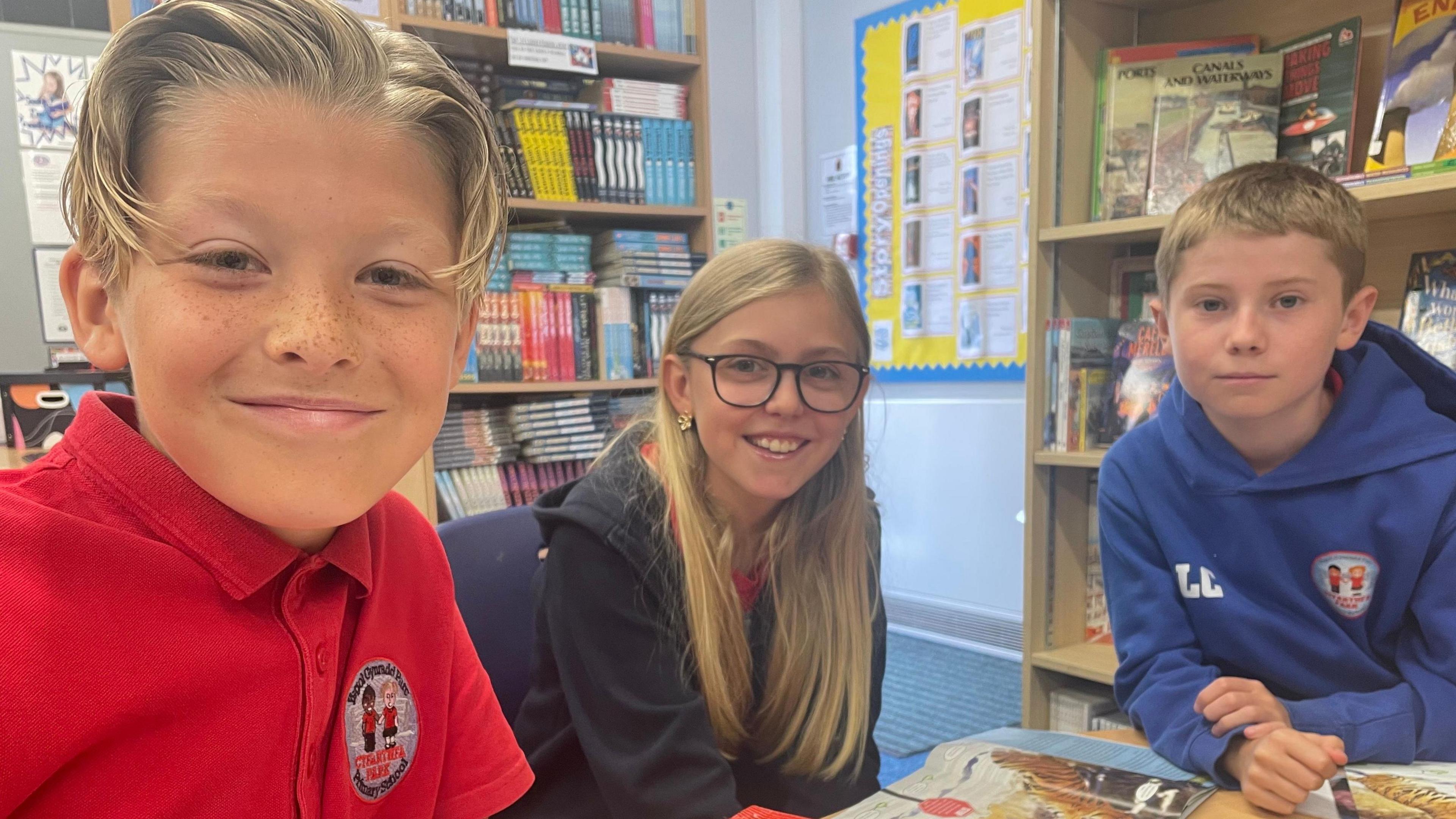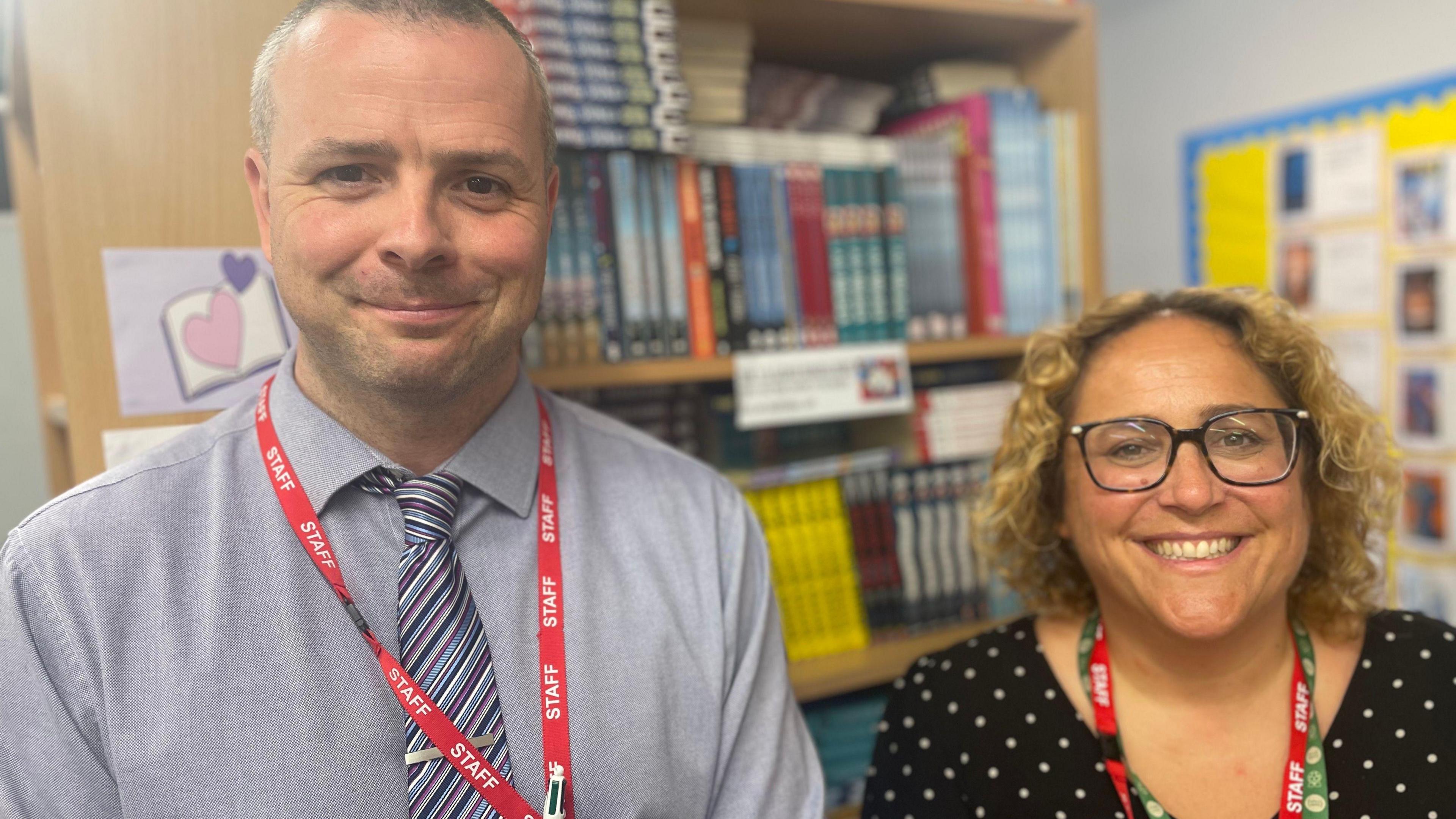Children's reading standards 'a lottery' in Wales

Wales' results slumped in international reading, maths and science tests raising concerns about 'patchy' standards
- Published
Children's reading standards in Wales are being left "completely to chance" amid concerns about levels of attainment, a teacher has said.
In international tests, Welsh 15-year-olds scored lower than pupils in all other UK nations in maths, science and reading with results showing the gap had widened.
Teacher Rob Randel said parents were getting "a lottery ticket" for their children's English reading standards without a consistent approach across schools.
The Welsh government said it was taking steps to improve attainment with more details of its plans due in the autumn.
Wales slumps to worst school test results
- Published5 December 2023
Pupil reading standards fall since Covid
- Published23 November 2023
Report calls for delay of Wales' GCSE overhaul
- Published21 March 2024
It has faced increasing political pressure over standards in education.
Mr Randel campaigns for better teaching of reading and said standards in Wales were "patchy at best".
For over a decade, schools in England have had to teach reading to the youngest children using a method called systematic synthetic phonics.
He said pupils in England had moved up the rankings in international tests.
"What I think we're currently seeing is instructional casualties in Wales because of those policy decisions that were made back then not to follow the same path that we saw across the border," Mr Randel said.
He added that the new Curriculum for Wales was not clear enough about how reading should be taught, with each of the 1200 primary schools deciding how it wished to teach reading.
In response, a Welsh government spokesperson said the curriculum was clear that "whilst schools should use the best tools to meet the individual needs of learners, the systematic and consistent teaching of phonics must be a key part of literacy".

Primary school teacher Rob Randel says the new schools curriculum is too "vague and ambiguous" about how reading should be taught
But Mr Randel said too many pupils in Wales ended up being "functionally illiterate" and many could not access other subjects properly because of poor reading skills.
"Essentially parents are purchasing a lottery ticket for their children when they decide on which school they send their children to."
Others in Welsh education share Mr Randel's concerns.
The author of a damning report on education in Wales, published earlier this year, said: "We don’t see much action from the Welsh government on areas that could lead to improvements."
Luke Sibieta, a research fellow at the Institute for Fiscal Studies, has called for a rethink of major reforms.
"We have the new Curriculum for Wales but most of the evidence suggests that could in fact reduce attainment or even widen inequalities."
The latest Pisa international test results, showed "a declining picture in reading, numeracy and science".
"Most countries across the world saw declines as a result of the pandemic, but the declines in Wales were larger and from a low base, which leaves scores really quite worrying," he said.
Mr Sibieta added that data from online assessments taken annually by seven-to-14 year olds showed significant gaps in results between children eligible for free schools meals and their classmates – 21 months on average in English reading.
That was despite ministers making tackling inequality a big priority, he said.
The Welsh government said it has already announced plans to improve the teaching of literacy as part of steps to improve attainment.
A spokesperson said attainment was dependent on a "wide range of factors which is why equity, inclusion and wellbeing would be at the centre of our plans”.
On Pisa tests, the spokesperson said that standards had been improving before the pandemic but more recent results had been disappointing.

Oscar, Nia and Lloyd say reading in groups builds their confidence and communication
A report from school inspectors, Estyn, found a wide variation in reading skills of 10-14 year olds, but Cyfarthfa Park Primary School in Merthyr Tydfil was praised for its teaching.
Year 6 pupils take part in different reading activities, with and without teachers.
Oscar, 11, said he enjoyed reciprocal reading, where pupils take different roles in a group to build their comprehension.
"It gives us the chance to communicate better."
"This is probably my favourite reading we do," said 11-year-old Lloyd, and Nia, also 11, said her favourite books to read are "ones with pictures, but not too many".

Staff at the school "all love reading" which they say helps to create "a nice reading culture"
Teachers said the key elements were a "consistent approach" and a "very clear vision for what reading needs to look like".
"We make sure that all children have excellent teaching in phonics and then as they get older we make sure we have a consistent approach to developing their fluency, their accuracy in their reading, as well as those higher order reading skills that they need to possess as they progress," assistant headteacher, Steven Bevan said.
Mr Bevan said the school had fine-tuned its approach over many years and still looked for improvements they could make.
"I think it's up to schools really to find what works for them, what is effective and build on that."